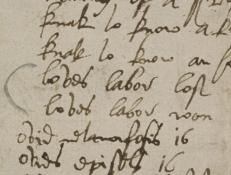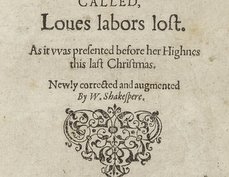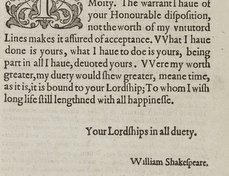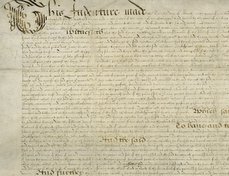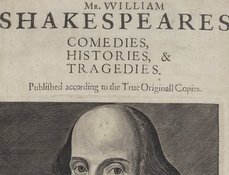Terms of use
Images that are under Folger copyright are licensed under a Creative Commons Attribution-ShareAlike 4.0 International License. This allows you to use our images without additional permission provided that you cite the Folger Shakespeare Library as the source and you license anything you create using the images under the same or equivalent license. For more information, including permissions beyond the scope of this license, see Permissions. The Folger waives permission fees for non-commercial publication by registered non-profits, including university presses, regardless of the license they use. For images copyrighted by an entity other than the Folger, please contact the copyright holder for permission information.
Copy-specific information
Creator: Francis Meres
Title: Palladis tamia. VVits treasury being the second part of Wits common wealth. By Francis Meres Maister of Artes of both Vniuersities.
Date: At London : printed by P. Short, for Cuthbert Burbie, and are to be solde at his shop at the Royall Exchange, 1598.
Repository: Folger Shakespeare Library, Washington, DC, USA
Opening: STC 17834 copy 1, title page and sigs. Nn6v-Oo4r
View online bibliographic record
Adam G. Hooks, "Palladis tamia: one of the earliest printed assessments of Shakespeare's works, and the first mention of his sonnets," Shakespeare Documented, https://doi.org/10.37078/161.
Folger Shakespeare Library, STC 17834 copy 1. See Shakespeare Documented, https://doi.org/10.37078/161.
Francis Meres provided one of the earliest printed assessments of Shakespeare’s plays and poetry in his 1598 publication, Palladis Tamia, Wits Treasury in a chapter entitled “A comparatiue discourse of our English Poets, with the Greeke, Latine, and Italian Poets."
After earning a Master of Arts degree from Cambridge in 1591 and being incorporated at Oxford in 1593, and having failed to find suitable employment, Francis Meres moved to London in the late 1590s, where he briefly became a writer and translator before leaving the city to become a provincial clergyman and schoolmaster. In 1598 he compiled Palladis Tamia, Wits Treasury, a commonplace book printed by Peter Short and published by Cuthbert Burby. Palladis Tamia consists of quotations and sententious sayings organized under topical headings. Meres advertised his book as part of a series of such commonplace books that appeared around the turn of the seventeenth century, several of which were sponsored by John Bodenham. Most of the quotations in Palladis Tamia are copied from works of classical Latin (conveniently found in collections compiled by Erasmus, among others) but Meres relied on vernacular sources, as well.
Meres included “A comparatiue discourse” in which he surveyed the contemporary literary scene. His comments are among the most often quoted allusions to Shakespeare, mentioning him by name seven times. Like John Weever and William Covell, Meres recognized Shakespeare’s reputation for sweetly styled Ovidian love poetry, writing that “the sweete wittie soule of Ouid liues in mellifluous & hony-tongued Shakespeare, witness his Venus and Adonis, his Lucrece, his sugred Sonnets among his priuate friends, &tc.”
Meres is the first author to mention Shakespeare as a writer of sonnets, and his praise also indicates that Shakespeare’s sonnets were already circulating in manuscript a decade before they were printed in 1609.
Meres also praised Shakespeare’s plays, comparing him to both Plautus and Seneca and writing that “Shakespeare among ye English is the most excellent in both kinds [i.e. both Comedy and Tragedy] for the stage.” Meres then lists six examples each of Shakespeare’s comedies and tragedies, including plays like Richard III and Romeo and Juliet that were recently printed, and plays like Two Gentlemen of Verona and Comedy of Errors that were not printed until the First Folio in 1623. He tantalizingly mentions “Loue labours wonne,” apparently a sequel to Loves Labor's Lost that has since been lost. Mere’s complete list includes Love’s Labor’s Lost, A Midsummer Night’s Dream, The Merchant of Venice, Richard II, Henry IV Part 1, King John, and Titus Andronicus.
Meres’s comments have provided evidence for the dating of some of Shakespeare’s plays, but more importantly Meres acts as a perceptive contemporary witness to Shakespeare’s reputation in the 1590s.
Written by Adam G. Hooks
Sources
Don Cameron Allen, ed., Francis Meres’s Treatise ‘Poetrie’: A Critical Edition. vol 16 of University of Illinois Studies in Language and Literature, no. 3-4 (Urbana: University of Illinois, 1933).
T. W. Baldwin, Shakspere’s Love’s Labor’s Won: New Evidence from the Account Books of an Elizabethan Bookseller. Carbondale: Southern Illinois University Press, 1957.
Zachary Lesser and Peter Stallybrass, “The First Literary Hamlet and the Commonplacing of Professional Plays.” Shakespeare Quarterly 59, no. 4 (2008): 371-420.
Last updated January 25, 2020








